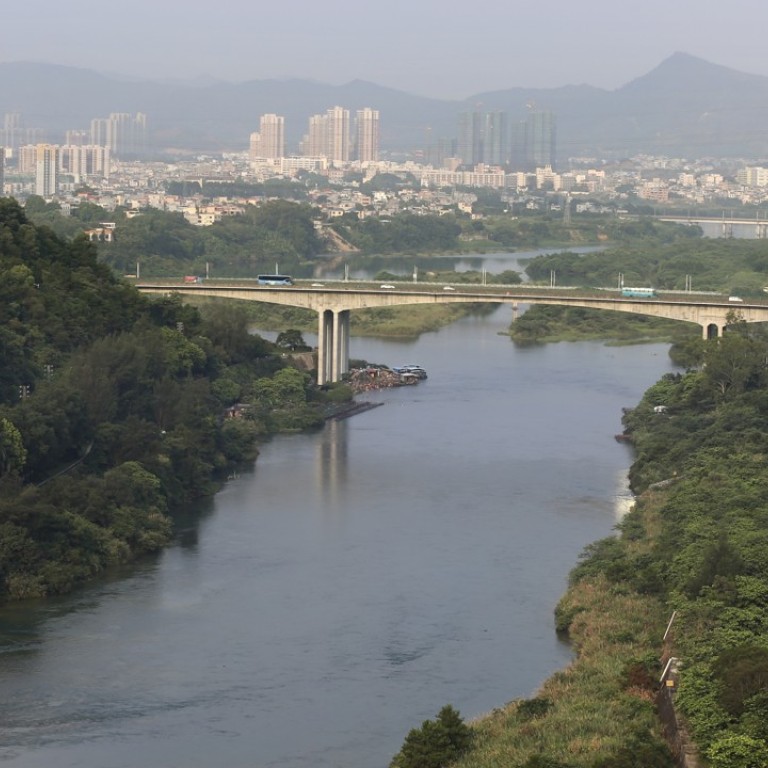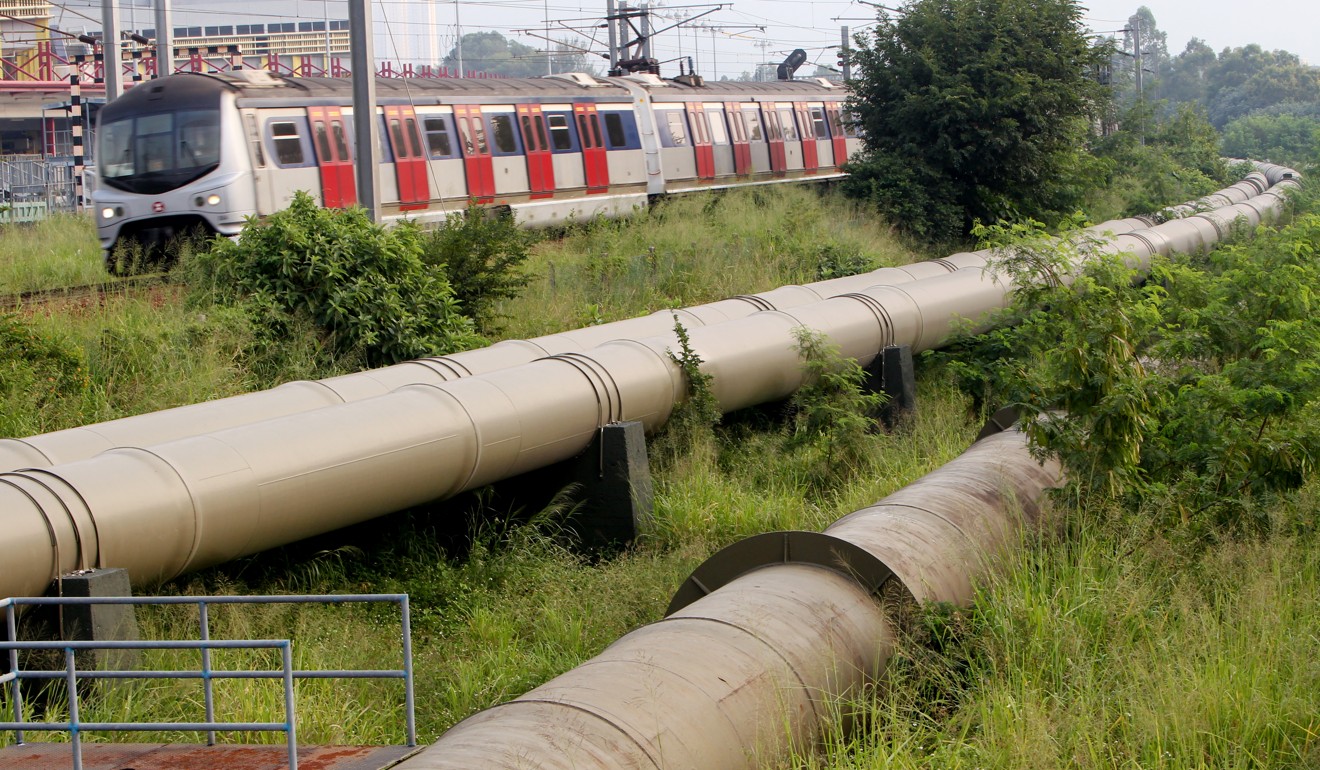
HK$14.4 billion a year for water: can Hong Kong strike a better deal on supply from mainland China?
Guangdong has agreed to review the price formula after 2020 but critics are sceptical of city’s bargaining power in talks
Hong Kong may get a more favourable water import deal with mainland China after 2020, following an agreement between authorities from both sides to review the current price formula.
The details on water supply from Guangdong are contained in a document to be tabled for discussion at the Legislative Council’s panel for development next Tuesday.
One option put forth by Hong Kong officials was to explore the payment of a fixed sum for a guaranteed amount of water from across the border, with a flexible rate for additional imports based on volume.

At present, Hong Kong is under a HK$13.5 billion deal to buy water from Guangdong until the end of the year. According to the Development Bureau paper, taxpayers will then have to fork out more for a HK$14.4 billion deal – an increase of 6.7 per cent – for water imports from next year until 2020.
Hong Kong lawmaker Claudia Mo Man-ching, from the newly formed pan-democratic group Council Front, had expressed disappointment with the pricier water deal after this year.
Hong Kong has been importing water from the Dongjiang – or East River – in Guangdong since 1965 to meet its needs. At present, the river provides about 70 to 80 per cent of Hong Kong’s water supply.
Under the prevailing “lump sum package” approach, adopted in 2006, the annual supply ceiling is set at 820 million cubic metres. The water supply from Guangdong is then adjusted on a monthly basis according to the needs of Hong Kong and rainfall in the city. This is to avoid excess supply in exceptionally wet months.
Despite the arrangement, some 28.5 million cubic metres of water were wasted last year as Hong Kong reservoirs recorded a surplus.
Is Hong Kong’s HK$13.4 billion water deal with mainland China unfair?
Critics said the current plan was too inflexible and called for “payment based on actual supply”.
According to the bureau paper, Guangdong authorities have agreed to review the price formula.
“The ‘lump sum package’ approach has been in place for more than 10 years since it was adopted in 2006,” the document stated. “It is considered an appropriate time to review [this].”
Options raised include combinations of a fixed sum for a guaranteed volume, above which a variable sum could be charged based on supply.
“The [Guangdong] side has agreed to jointly take forward the review,” the paper stated.
Depending on the outcome, a new formula could be adopted for water supply agreements after 2020.
Hong Kong consumed some 987 million cubic metres of water last year. The government has been exploring other water resources, including the proposed development of a seawater desalination plant at Tseung Kwan O.
But officials said it would be unrealistic to expect Hong Kong to achieve self-sufficiency.
Dr Frederick Lee Yok-shiu, director of the University of Hong Kong’s water governance research programme, said the pledge of a review was just a delaying tactic by officials.
“It shows that Hong Kong’s bargaining power in negotiations is very weak,” he said.
Lee also said the new agreement would have almost no impact on Hongkongers’ consumption habits – one of the world’s highest per capita – as it would be “business as usual for normal residents”.
He added that there would still be no incentive for residents to save water.
“If I use less water, Hong Kong still has to pay that much money.”
Additional reporting by Ernest Kao


